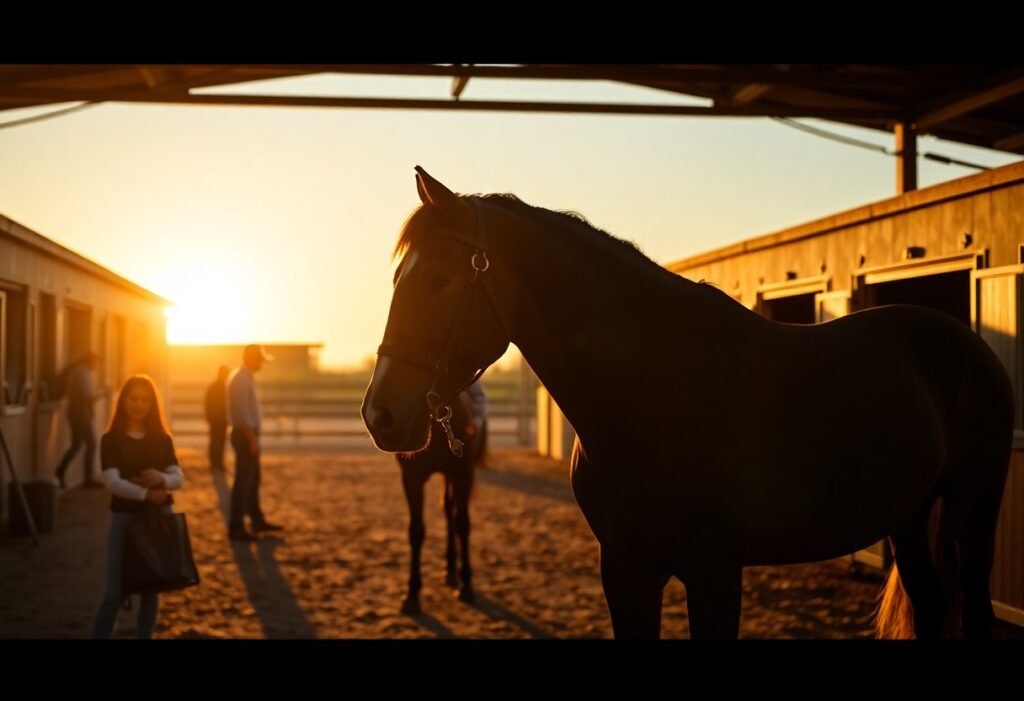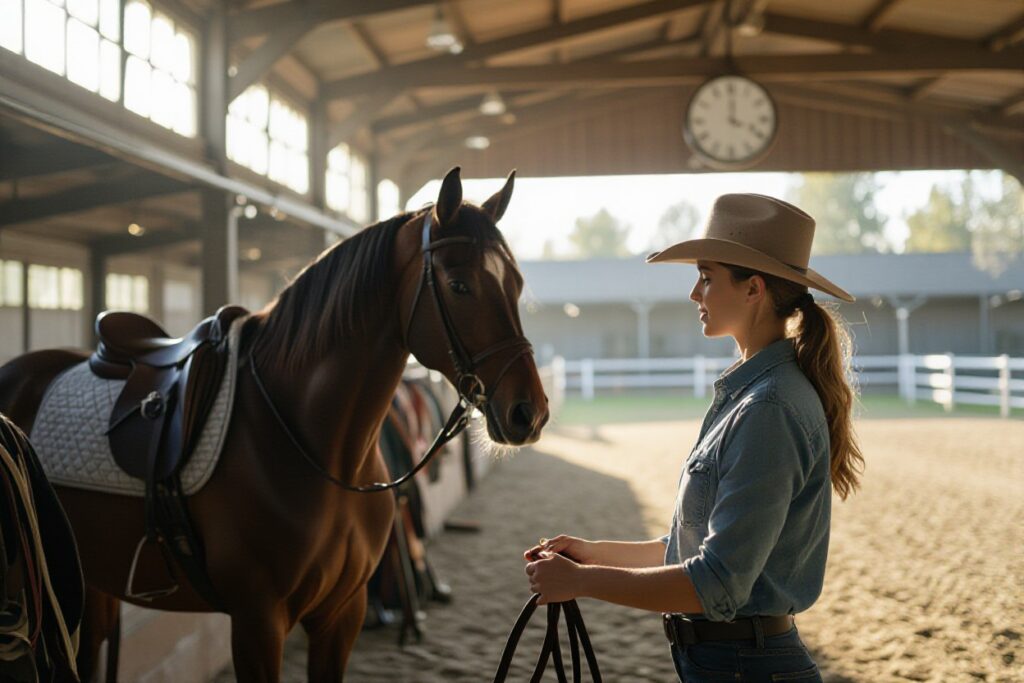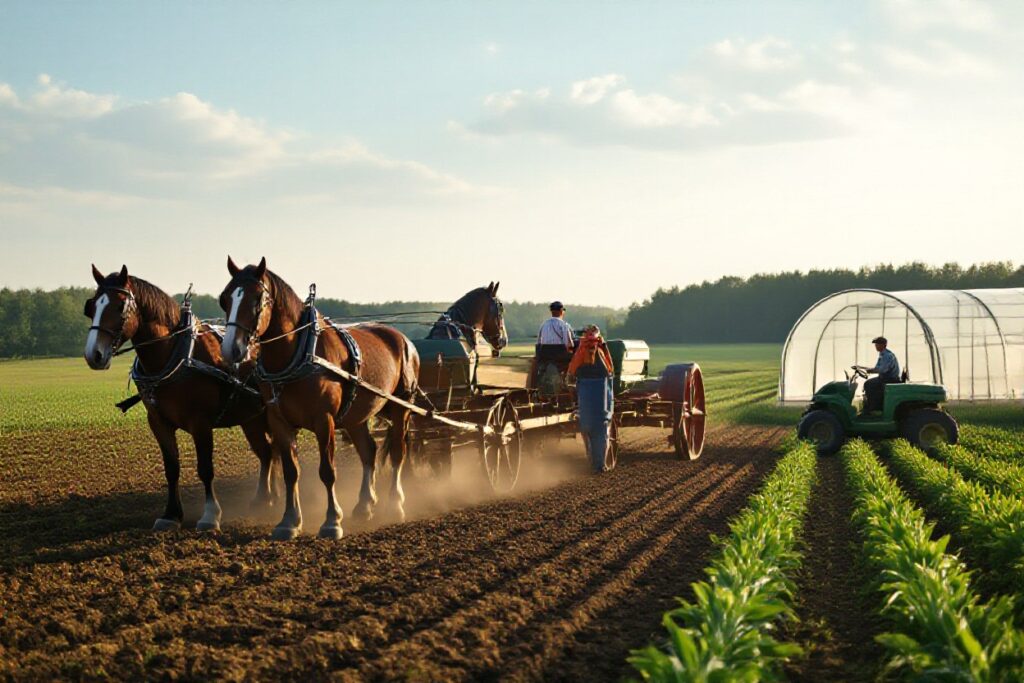Routine is necessary for horse trainers, as it sets the stage for your daily success and helps you manage multiple responsibilities. Your day typically starts at dawn when the world is quiet and the horses are fresh. Early mornings often involve feeding the horses and performing basic health checks, allowing you to establish a bond and assess their wellbeing.
Once the horses are fed and settled, you spend some time grooming each one. This not only keeps their coats healthy but also provides an opportunity to check for injuries or irritations. Grooming is a necessary step in building trust, and you’ll want to ensure that each horse feels comfortable with your presence.
After grooming, it’s time for training sessions. You’ll likely have a structured plan, focusing on different skills or manners each day. Whether it’s groundwork, riding, or specific exercises, you customize your training strategies based on individual horse needs. You may find yourself alternating between different horses throughout the day, ensuring that each one gets dedicated attention.
In between training, you take time for the administrative side of your job. This includes scheduling upcoming training sessions, documenting progress, and communicating with clients. Keeping accurate records is vital, allowing you to monitor your horses’ development and address any issues effectively.
Midday often brings a break, allowing you to refuel and recharge before the second half of your day. During this time, you may also focus on client communication. Updating clients on their horse’s progress or discussing training plans fosters trust and ensures everyone is on the same page.
As the day progresses, you return to the stables for afternoon sessions. The heat can affect a horse’s performance, so adjusting your training intensity is important during warmer months. You’ll need to be attentive and flexible, adapting your methods based on the time of day and environmental conditions.
In the late afternoon, you might conduct groundwork exercises or light riding sessions. This is a great time for less intense training, allowing you to reinforce previously learned skills or simply enjoy quality time with the horses. Ensuring each horse receives adequate attention helps solidify your relationship with them.
As evening approaches, the chores resume. This involves feeding and providing fresh water for the horses, ensuring they are comfortable for the night. Regular, diligent care is vital for their health and happiness. You may also take time to clean the stalls, creating a positive living environment that promotes well-being.
Finally, as your day comes to a close, you may spend a moment reflecting on the day’s activities. Evaluating what went well and what needs improvement is a significant part of your growth as a trainer. Each day is an opportunity to learn, adapt, and foster the special bond between you and your horses.











